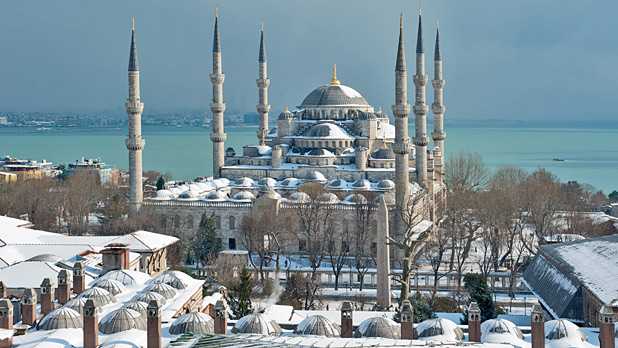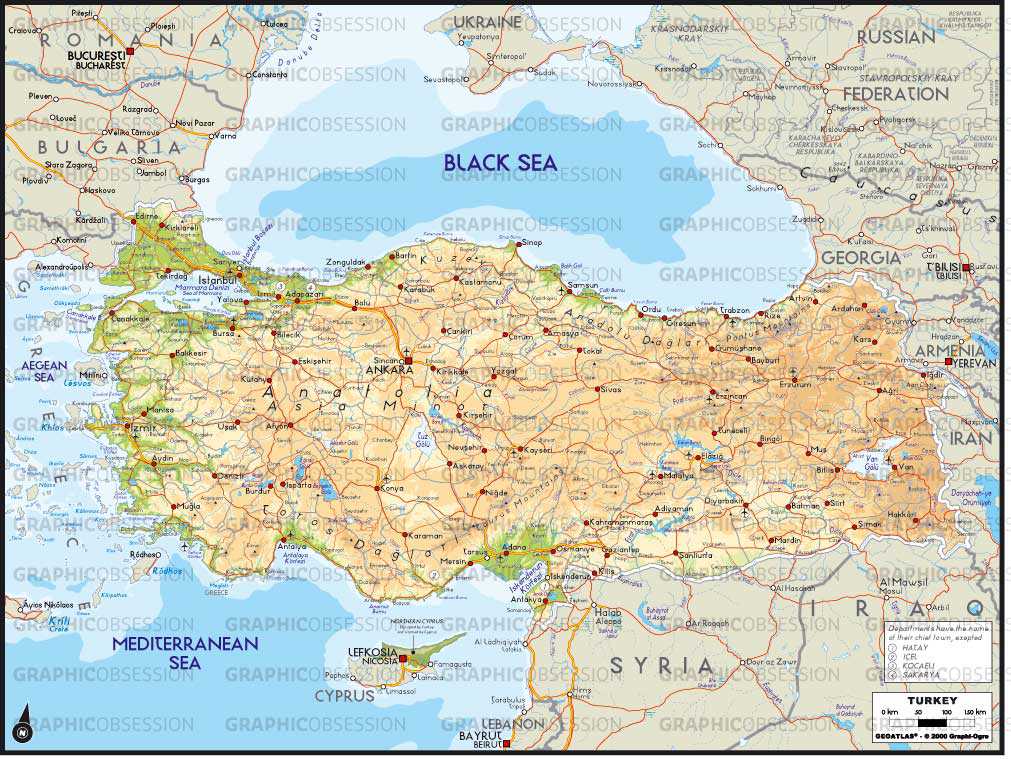By Nicholas Birch in Istanbul
As symbolic gestures go, Turkish President Abdullah Gul’s attendance at an Armenia-Turkey football match in Yerevan on September 6 could not have been bettered.
The first visit by a senior Turkish politician since Armenia became independent 17 years ago, it has sparked an upsurge of fraternal feeling on both sides of a border closed since 1993. And the signs are that there is more to come. If Armenia agrees to renounce territorial claims on eastern Turkey implicit in its founding charter, one senior Turkish diplomat says: “We could see diplomatic relations begun and rail links restarted within six months.”
“The two sides are in agreement over a surprising number of issues,” agrees Richard Giragosian, a Yerevan-based analyst, describing Armenia’s invitation of Gul as “a vital foreign policy victory” for the Caucasian state’s embattled government. Armenia stands to benefit enormously from the rapprochement. With its Azeri and Turkish borders closed, Georgia has been its only window on the West. When Russia wrecked Georgian infrastructure in August, it was Armenians, not Georgians, who suffered from food shortages.
It is no coincidence either that the two Turkish provinces bordering Armenia are the country’s poorest. For years, politicians in Kars and Igdir have been calling for the border to be opened. Trade between the two countries “would slow rapid population movement away from eastern Turkey,” says former Turkish ambassador to Russia, Volkan Vural. “It would provide Central Asia-bound exporters with a good new route. Plus energy security would be improved if Armenia joins current energy projects.”
Though Turkey has increasingly used its key position on the “East-West” corridor connecting Europe to the Caspian as a card in its stumbling EU negotiations, such optimism seems premature, for three reasons.
Reasons not to be cheerful
First, it ignores the fact that Armenia’s border with Azerbaijan has been closed since the 1988-1994 armed conflict that took place in the small ethnic enclave of Nagorno-Karabakh in southwestern Azerbaijan, between the predominantly ethnic Armenians and Azeri forces. Azerbaijan showed considerable statesmanship in backing the Turkish-Armenian rapprochement. But there is no sign of progress on Nagorno-Karabakh. Instead, enriched with oil and gas money, Baku now spends $1bn annually on military rearmament. Belligerent rhetoric about re-taking lost territories is, if anything, on the up.
Second, and much more importantly, Turkey’s talk of a new Caucasian pact appears to ignore the key lesson of August’s conflict in South Ossetia; in today’s Caucasus, Russia is boss. The August bust-up “was clearly not about Ossetia, only a little about Georgia, only a little about Nato, and a huge amount about geopolitics,” says David Smith, director of the Georgian Security Analysis Center in Tbilisi. “It was a shot fired at the East-West corridor, a warning to BP, ExxonMobil, anybody hoping to loosen Gazprom’s hold on Central Asia.”
With Russian bombs falling within 200 metres of the Baku-Tbilisi-Ceyhan (BTC) oil pipeline, Georgia’s neighbours seem to have got the message. Azerbaijan recently upped oil exports via Russian pipelines when BTC flow was interrupted by a Turkish Kurdish separatist sabotage attack on the pipeline on August 6. And when US Vice-President Dick Cheney visited Baku on September 3 to drum up local support for a trans-Caspian gas line, Azeri President Ilham Aliyev turned him down.
With the future of Nabucco, a hugely expensive EU-backed gas pipeline due to bring Caspian gas direct to Europe by 2013, looking increasingly doubtful, some analysts hint at the possibility of rerouting the East-West corridor through Armenia. But this talk of Armenia offering new energy security possibilities misses another point: Georgia earned its position on the East-West corridor thanks to its staunch pro-American stance; Armenia, meanwhile, to cite Richard Giragosian, is little better than “a Russian garrison state.”
Visitors to Yerevan have their passports stamped by Russian border guards. Armenia’s energy and telecommunication sectors have been in Russian hands since 2005 and 2006 respectively. Russian Railways bought Armenian railways this January. In that context, Giragosian argues, opening the Turkish-Armenian border risks abetting Russian efforts to sideline Georgia. “The key question Turkey needs to ask itself over Armenia,” he says, “is do we have a partner on the other side.”






